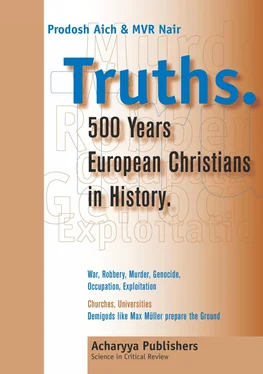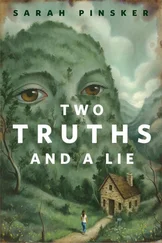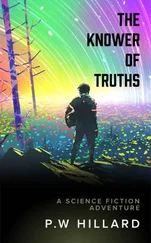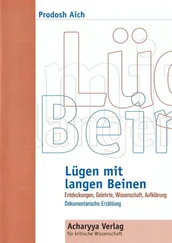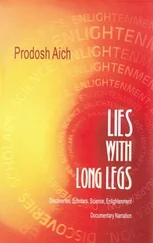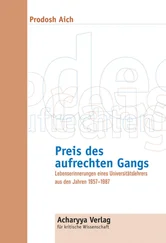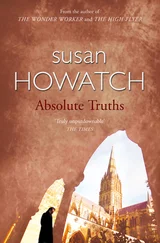Modern scholars and their sciences
“No one who is at all acquainted with the position which India occupies in the history of the world, would expect to find many synchronisms between the history of the Brahmins and that of other nations before the date of the origin of Buddhism in India. Although the Brahmins of India belong to the same family, the Aryan or Indo-European family, which civilised the whole of Europe, the two great branches of that primitive race were kept asunder for centuries after their first separation. The main stream of the Aryan nations has always flowed towards the North West. No historian can tell us by what impulse those adventurous Nomads were driven on, through Asia towards the isles and shores of Europe. The first start of these world-wide migrations belongs to a period far beyond the reach of documentary history; to times when the soils of Europe had not been trodden by either Celts, Germans, Slavonians, Romans or Greeks. But whatever it was, the impulse was as irresistible as the spell which, in our own times, sends the Celtic tribes towards the prairies or the regions of gold across the Atlantic. It requires a strong will, or a great amount of inertness, to be able to withstand the impetus of such national, or rather ethnical movements. Few will stay behind when all are going. But to let one’s friends depart, and then to set out ourselves – to take a road which, lead where it may, can never lead us to join those again who speak our language and worship our gods – is a course which only men of strong individuality and great self- dependence are capable of pursuing. It was the course adopted by the southern branch of the Aryan family, the Brahmanic Aryans of India and the Zoroastrians of Iran.
At the first dawn of traditional history we see these Aryan tribes migrating across the snow of the Himâlaya southward to the ‘Seven rivers’ (the Indus, the five rivers of the Panjâb and the Sarasvati), and ever since India has been called their home. That before that time they had been living in more northern regions, within the same precincts with the ancestors of the Greeks, the Italians, the Slavonians, Germans and Celts, is a fact as firmly established as that the Normans of William the conqueror were the Northmen of Scandinavia. The evidence of language is irrefragable, and it is the only evidence worth listening to with regard to ante-historical periods. It would have been next to impossible to discover any traces of relationship between the swarthy natives of India and their conquerors, whether Alexander or Clive, but for the testimony borne by language. What other evidence could have reached back to times when Greece was not peopled by Greeks, nor India by Hindus? Yet these are the times of which we are speaking. What authority would have been strong enough to persuade the Grecian army, that their God and their hero ancestors were the same as those of King Porus, or to convince the English soldier that the same blood was running in his veins and in the veins of the dark Bengalese? ... There was a time when the ancestors of the Celts, the Germans, the Slavonians, the Greeks, and Italians, the Persians, and the Hindus were living together within the same fences, separate from the ancestors of the Semitic and Turanian races.
It is more difficult to prove that the Hindu was the last to leave this common home, that he saw his brothers all depart towards the setting sun and that then, turning towards the south and the east, he started alone in search for a new world. But as in his language and in his grammar he has preserved something of what seems peculiar to each of the northern dialects singly, alone, as he agrees with the Greek and the German where the Greek and the German seem to differ from all the rest, and as no other language has carried off so large a share of the common Aryan heirloom – whether roots, grammar, words, myths or legends – it is natural to suppose that, though perhaps the eldest brother, the Hindu was the last to leave the central home of the Aryan family.
The Aryan nations, who pursued a north-westerly direction, stand before us in history as the principal Nations of North-western Asia and Europe. They have been the prominent actors in the great drama of the history, and have carried to their fullest growth all the elements of acting life with which our nature is endowed. They have perfected society and morals, and we learn from their literature and works of art the elements of science, the laws of art, and the principles of philosophy. In the continual struggle with each other and with Semitic and Turanian races, these Aryan nations have become the rulers of history, and it seems to be their mission to link all parts of the world together by the chains of civilisation, commerce, and religion. In a word, they represent the Aryan man in his historical character.
But while most of the members of the Aryan family followed this glorious path, the southern tribes were slowly migrating towards the mountains which gird in the north of India. After crossing the narrow pass of the Hindukush or the Himâlaya, they conquered or drove before them, as it seems without much effort, the aboriginal inhabitants of the Trans-Himalayan countries. They took for their guides the principal rivers of northern India, and were led by them to new homes in their beautiful and fertile valleys.”
These few lines tell precisely the prevailing Modern History of Human Culturein a nutshell. Every sentence of this quotation seems to carry findings of meticulous research by scholars that have been summed up in these lines. Is it so? It is not so. Not a single source has been mentioned. So, for readers, for us, for our understanding there is only one alternative left. Either believe in this told history or reject. Nothing can be checked. Nothing can be known. As it is just mentioned, Modern History of Human Cultureis founded on these lines whatsoever. Never before lines like these were published. Not a single line in this quote has been revised. Modern Scholars have believed in these findings and have accepted these findings. Willingly, as it appears. One needs only to consult published literature.
These lines are quoted from a celebrated scholarly book published in 1859 by a renowned scholar of that time who is well-celebrated till today. The inner title-page of this book is noteworthy. Here it is.
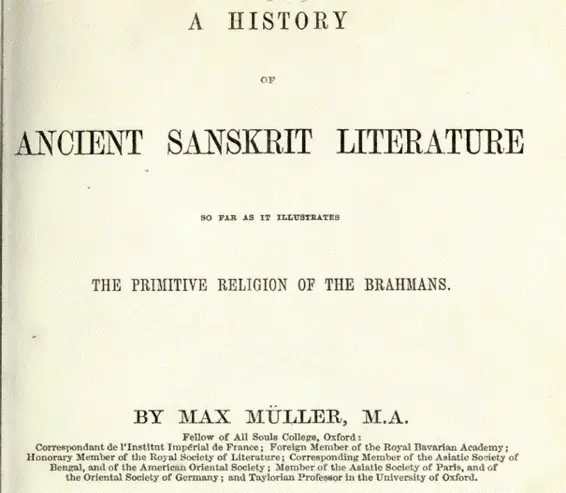
As simple - minded searchers, we have learnt to adopt the wisdom of our ancestors that is universally practiced in daily life through ages. Whenever we hear a tale or see something, we are alert and we are careful. From the inner title-page we come to know that the author is one Max Müller. He has acquired the academic degree of a Master of Arts. We all know that “Master of Arts” is an academicdegree. It is, in simpler words, academy-leaving-certificate indicating that the holder of the certificate did consume his years in the academy successfully. It is not a researchdegree. Research Degreescan only be acquired by doing and publishing independent research. These are post M.A. degrees. Research Qualificationscan also be acquired by doing and publishing research works.
Therefore, we conclude that Max Müller, M.A.,did not acquire a researcha researchdegree up to the year 1859. This does not mean that Max Müller, M.A.has not acquired research qualifications. It would have been a better decoration of the inner-title page referring to eventual published research reports. We must look out whether, when, where and on what subjects he has done independent research. We have taken a note of our query and we shall follow it up. We must also know where and from which College or University Max Müllerhas acquired his academic degree of a Master of Arts.
Читать дальше
